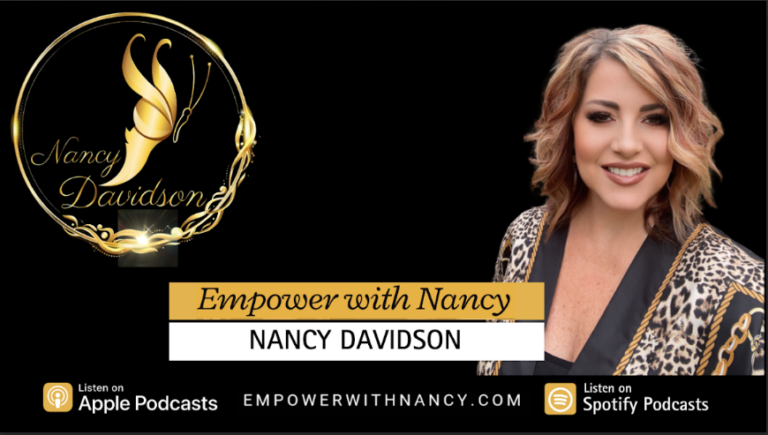5 Sleep Strategies for Personal Empowerment: Unlocking Better Rest and Well-being
In today’s fast-paced, high-pressure society, the pursuit of success often requires relentless dedication, hard work, and a willingness to sacrifice. Unfortunately, one of the most common sacrifices we make in our quest for achievement is sleep. It’s easy to overlook the importance of sleep in our lives when we’re caught up in the rush of daily tasks, deadlines, and commitments. However, neglecting our need for quality rest can have significant consequences for our physical, mental, and emotional well-being, ultimately impeding our progress and limiting our potential for personal empowerment.
Recent research has shed light on the critical role that sleep plays in maintaining and enhancing our overall health, cognitive function, and emotional well-being. Our sleep cycles, consisting of distinct stages such as REM (rapid eye movement) and NREM (non-rapid eye movement) sleep, contribute to essential processes like memory consolidation, learning, and emotional regulation. Maintaining healthy sleep patterns has been linked to increased productivity, creativity, and emotional resilience, crucial factors for personal growth and empowerment.
By understanding the importance of sleep and adopting strategies to promote healthy sleep habits, we can greatly enhance our ability to achieve personal empowerment and lasting success in all areas of our lives.
I. The Science of Sleep: Understanding Sleep Cycles and Their Impact on Well-being
Sleep is a complex, yet essential process that plays a vital role in restoring and rejuvenating our bodies and minds. During sleep, our bodies progress through several stages of sleep cycles, including REM (rapid eye movement) sleep and NREM (non-rapid eye movement) sleep, each serving a unique function:
1. NREM sleep (stages N1, N2, and N3): Accounts for roughly 75% of our sleep time and is essential for memory consolidation, cell renewal, and tissue repair.
2. REM sleep: Covers the remaining 25% of our sleep time and is critical for brain development, learning, and emotional regulation.
Understanding the importance of sleep cycles highlights the need to prioritize and protect our sleep for optimal personal empowerment and well-being.
II. The Connection Between Sleep and Personal Empowerment
Adequate, restorative sleep is essential to personal empowerment, as it enables us to function at our best in various aspects of life. Quality sleep directly contributes to numerous benefits that promote personal growth, including:
1. Enhanced cognitive function: Sleep is crucial for memory consolidation, problem-solving, and creative thinking. These cognitive skills are vital for effective decision-making and planning in achieving personal goals.
2. Improved emotional well-being: Sleep supports our ability to manage stress and regulate emotions, allowing us to navigate challenges with resilience, maintain a positive outlook, and cultivate healthy relationships.
3. Greater physical health: Adequate sleep is necessary for maintaining a strong immune system, reducing inflammation, and supporting overall physical health. This enables us to be more active, energetic, and capable of pursuing our ambitions.
4. Increased productivity: Well-rested individuals tend to be more focused, efficient, and motivated, making them better equipped to achieve their personal and professional aspirations.
III. Common Sleep Problems and Their Impact on Success, Mood, and Health
Many factors can disrupt our sleep patterns and hinder our ability to reap the benefits needed for personal empowerment. Common sleep problems include:
1. Insomnia: Difficulty falling or staying asleep, often resulting in fatigue, irritability, and difficulty concentrating.
2. Sleep apnea: A disorder characterized by brief, involuntary interruptions in breathing during sleep, leading to poor sleep quality and excessive daytime sleepiness.
3. Restless leg syndrome: A neurological condition that causes an uncontrollable urge to move the legs during periods of inactivity, particularly at night, disrupting sleep quality.
4. Sleep deprivation: A chronic lack of sufficient sleep, which can result in cognitive impairments, emotional instability, and increased susceptibility to illness.
These and other sleep issues can have a detrimental impact on our ability to achieve personal empowerment, success, and overall well-being.
IV. Effective Sleep Strategies to Unlock Better Rest and Empowerment
Implementing effective sleep strategies can significantly improve sleep quality and support personal empowerment. Consider the following techniques to enhance your sleep:
1. Establish a consistent sleep schedule: Going to bed and waking up at the same time each day helps regulate your body’s internal clock, ultimately improving sleep quality and reducing sleep disruptions.
2. Create a sleep-conducive environment: Ensure your bedroom is cool, dark, and quiet. This may involve investing in blackout curtains, a comfortable mattress, and a white noise machine.
3. Limit exposure to screens before bedtime: Digital devices emit blue light, which can interfere with the body’s production of the sleep hormone melatonin. Establish a digital curfew at least an hour before bedtime to minimize this risk.
4. Incorporate relaxation techniques: Practices such as deep-breathing exercises, progressive muscle relaxation, or guided imagery can help calm the mind and prepare the body for sleep.
5. Evaluate your sleep habits: Keep a sleep diary to track your sleep patterns, identify potential triggers for poor sleep, and pinpoint areas of improvement.
V. How a Self-Empowerment Coach Can Support Your Sleep Journey
A self-empowerment coach can be an invaluable partner in your quest for better sleep and personal empowerment. Consider the following ways in which a coach can support your journey:
1. Identify barriers to healthy sleep: A self-empowerment coach can help you uncover the root causes of sleep problems, such as stress or unhelpful habits, and develop targeted strategies to address them.
2. Customize sleep strategies: Your coach will provide personalized, evidence-based recommendations that align with your unique needs, preferences, and lifestyle.
3. Provide motivation and accountability: A coach can help maintain your motivation, monitor your progress, and hold you accountable for implementing recommended sleep strategies.
4. Address related concerns: If additional challenges, such as stress management or work-life balance, are impacting your sleep, your self-empowerment coach can offer guidance and support to address these issues and enhance your overall well-being.
Conclusion
Harnessing the power of sleep is essential to achieving personal empowerment and lasting success in all facets of our lives. By understanding the importance of sleep, recognizing common sleep problems, and implementing effective sleep strategies, we can optimize our sleep quality and unlock our full potential for personal growth. A self-empowerment coach can be a valuable resource in guiding and supporting your journey to optimal sleep and overall well-being. Learn more about how sleep can revolutionize your personal empowerment journey schedule a complimemtary call with Nancy Davidson today!


